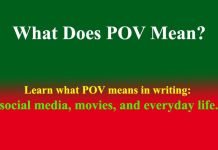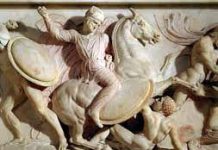Foreshadowing Definition Literature
Foreshadowing Definition Literature
Foreshadowing Definition Literature
Introduction:
In literature, foreshadowing is a narrative device used by authors to hint or suggest events that will unfold later in the story. It involves providing subtle clues, hints, or indications about future developments, creating anticipation and tension for readers. Foreshadowing adds depth and complexity to the narrative, allowing readers to engage in speculative analysis and enhancing the overall reading experience.
Foreshadowing Definition in Literature:
Foreshadowing is a literary technique employed by authors to provide advance hints or indications about what will occur later in the plot. These hints can be explicit or subtle, creating a sense of anticipation and preparing the audience for significant events, twists, or developments in the storyline. Foreshadowing is a form of literary suspense that invites readers to interpret and speculate about the unfolding narrative.
Key Aspects of Foreshadowing:
Subtle Clues: Foreshadowing involves the use of subtle and often indirect clues or hints within the narrative. These clues may be embedded in dialogue, imagery, symbols, or events.
Anticipation: The primary purpose of foreshadowing is to build anticipation and tension among readers. By providing glimpses of what might happen, authors engage the audience’s curiosity and encourage them to contemplate possible outcomes.
Enhanced Suspense: Foreshadowing contributes to the overall suspense of a story. It keeps readers invested in the narrative by fostering a sense of uncertainty and curiosity about the future events and their implications.
Multiple Forms: Foreshadowing can take various forms, including verbal hints, symbolic elements, recurring motifs, or even structural choices in the narrative. Authors employ diverse techniques to create a layered and nuanced reading experience.
Examples of Foreshadowing:
Verbal Foreshadowing: In William Shakespeare’s “Macbeth,” the witches’ prophecies foreshadow Macbeth’s rise to power and subsequent downfall. The line “All hail, Macbeth! Hail to thee, Thane of Cawdor!” sets the stage for the unfolding tragedy.
Symbolic Foreshadowing: In Nathaniel Hawthorne’s “The Scarlet Letter,” the recurring appearance of the scarlet letter “A” foreshadows the central themes of sin, shame, and redemption. Foreshadowing Definition Literature
Imagery as Foreshadowing: In George Orwell’s “Animal Farm,” the increasingly authoritarian behavior of the pigs foreshadows the corruption and abuse of power that will unfold as the story progresses.
Structural Foreshadowing: In J.K. Rowling’s “Harry Potter” series, the presence of the ominous prophecy about Harry and Voldemort’s final confrontation serves as structural foreshadowing, influencing the overarching plot development.
Significance of Foreshadowing:
Reader Engagement: Foreshadowing captivates readers’ attention and encourages active engagement with the text as they seek to decipher clues and predict outcomes.
Artistic Complexity: Foreshadowing adds layers of complexity to a narrative, allowing authors to craft intricate and well-woven stories.
Narrative Unity: Foreshadowing contributes to narrative unity by linking different parts of the story and creating a cohesive and interconnected plot.
In summary, foreshadowing is a literary technique that enriches storytelling by providing advance hints and clues about future events, creating anticipation, suspense, and a more immersive reading experience for the audience. 0 0 0. Foreshadowing Definition Literature
Foreshadowing Definition Literature
Some More Queries for Ready Reference:
- Prose in Literature
- Literature Review Outline
- Literature Review Sample
- Mood in Literature
- Pathos Definition Literature
- How to Write a Literature Review
- How to Read Literature Like a Professor
- Theme Definition Literature
- Adult Content in Literature
- Erotic Literature
- Exposition Definition Literature
- Theme in Literature
- Literature Definition
- Logos Definition Literature
- Doki Doki Literature Club Characters
- Yuri Doki Doki Literature Club
- What are 2 Main Genres of Literature?
- What are the 4 Major Parts of Literature?
- What are the 2 major Types of Literature?
- What are the 3 Types of Literature?
- What is 5 definitions of literature?
- What is Literature in 150 Words
- What is a Literary Short Answer?
- What is the definition of literature?











